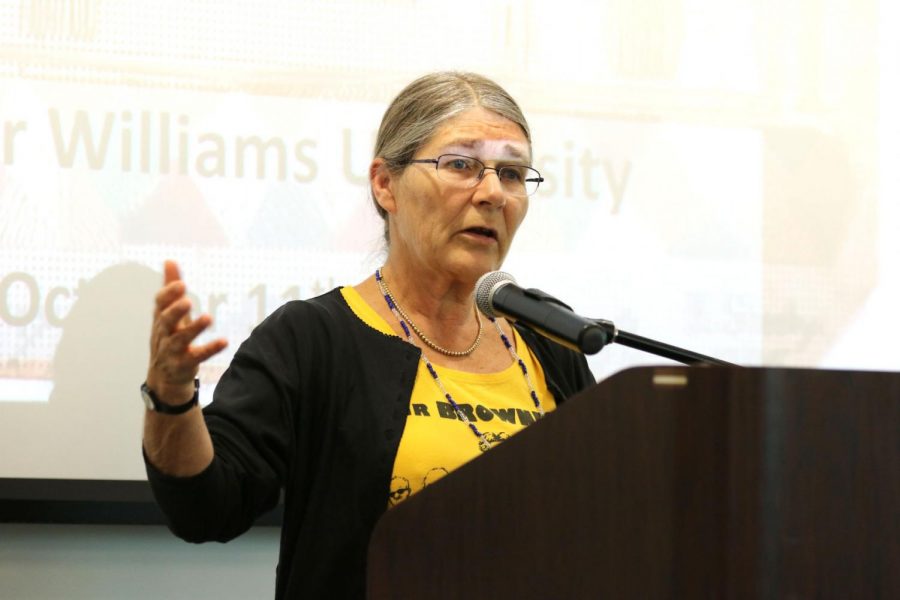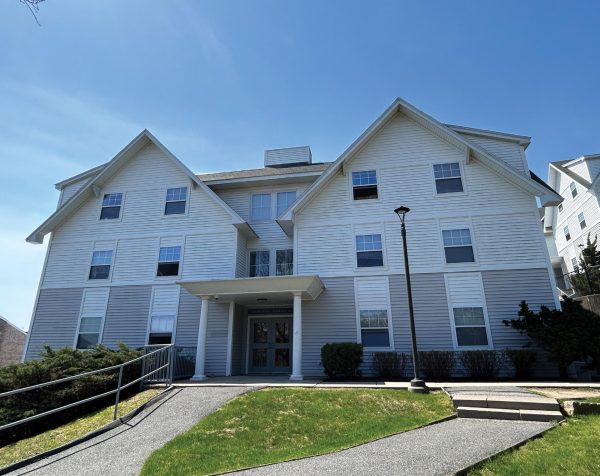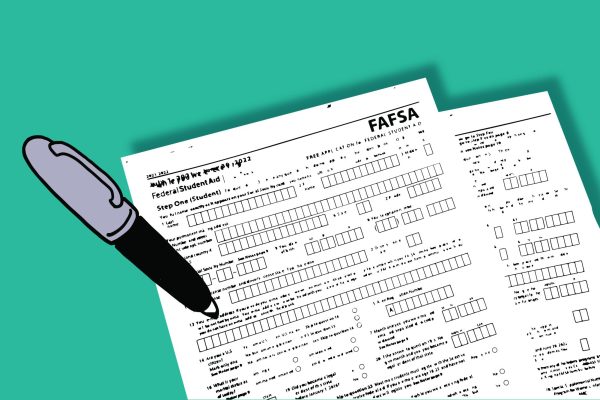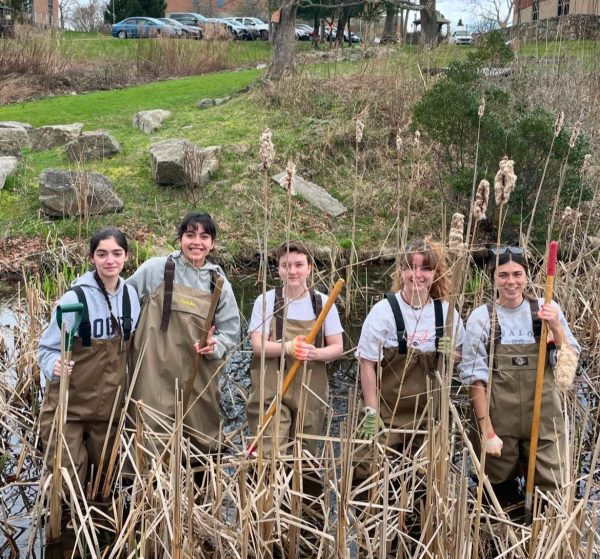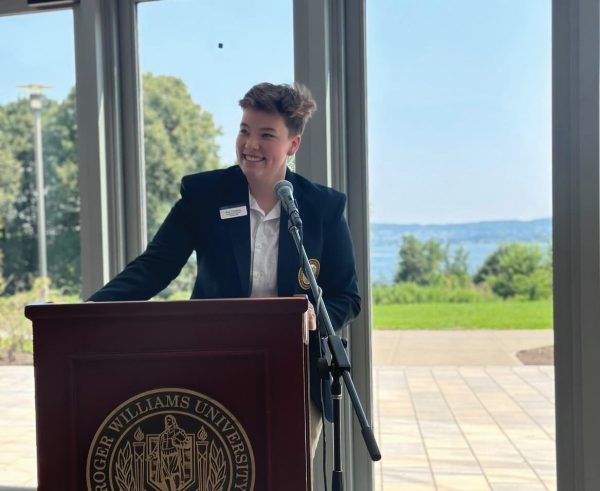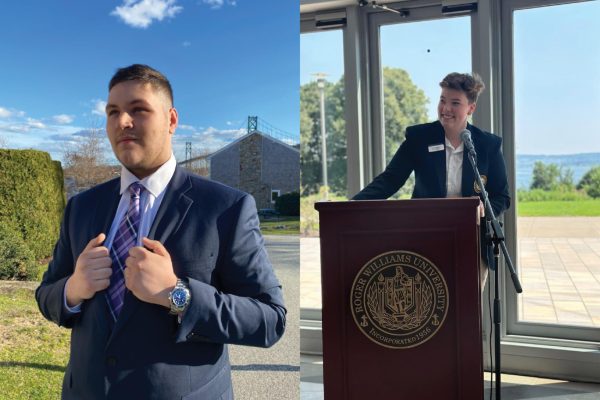Irish feminist Micheline Sheehy Skeffington speaks on continuing family legacy of activism
By Rebecca Farias | Herald Reporter
Sitting down with Irish feminist and activist Micheline Sheehy Skeffington was just like talking to another college student. On Wednesday, Oct. 11, she shared her life story, bursting with enthusiasm over her latest project in which she will retrace the actual locations where her grandmother campaigned for nationalism and women’s rights.
“I have speeches in New York; Connecticut; three places in Boston; two in Albany; in Bangor, Maine; Syracus; and four in Chicago. Then, I’ll be joining a women’s march,” Sheehy Skeffington said, adding that the typical locations for her speaking engagements are college campuses and Irish-American community centers.
Her campaign is linked to the creation of a new documentary, which will help bring her family’s fascinating history to the world, as well as shed some light on her own public triumphs over gender discrimination.
“I want to discover what it was like for my grandmother… I want to talk about my grandparents and their ideas,” Sheehy Skeffington said.
Sheehy Skeffington, whose dual last name originates from both of her prominent grandparents, describes them primarily as “activists,” a moniker she also adopts for herself.
“My grandmother came here one hundred years ago to campaign for the [right to] vote for women. She was not just the most famous Irish suffragette of the time, but the leader. My grandfather became a feminist at the age of eleven. His first magazine publication was about feminism,” Sheehy Skeffington said. “When they were married, each took [the] other’s last name.”
In fact, it was rumored that Hanna Sheehy and Francis Skeffington were first introduced by none other than James Joyce—the Irish literary master.
Francis and Joyce, who attended the same university, were both initially rejected after submitting pieces to the same magazine for publication. Sheehy Skeffington even claims that her grandparents are featured as characters in various Joyce novels under pseudonyms, including one of his most famous works, A Portrait of the Artist as a Young Man.
“Joyce was a bit libertarian, free spirited, devil-may-care,” Sheehy Skeffington said. “Francis was very straight-laced. They were both part of the debate society…They used to get together, Joyce would sing and play the piano and read poetry with them. They were just like any other college kids, fed up with the fuddy-duddies of the previous generation.”
Sheehy Skeffington delved into more enthusiastic detail in her presentation, “Quest for Justice: The Sheehy Skeffington’s Family’s Activism, 100 Years On.” She presented it as part of President Donald J. Farish’s Distinguished Speaker’s Series, in accordance with this year’s theme of “Race, Gender, and Power.”
President Farish introduced her family as a “feisty group” and said that Sheehy Skeffington is dedicated to “recapturing the era and its issues.”
A beaming Sheehy Skeffington took the podium, adding, “I come from a long line of troublemakers and jailbirds. My grandmother was even imprisoned for smashing windows. We take pride in going to prison—it’s not unusual.”
The Proclamation of the Irish Republic, published following the infamous Easter Revolution of 1916, guaranteed equal rights to Irish citizens and suffrage to all men and women. According to Sheehy Skeffington, her grandparents were integral in the creation of these clauses. Not only did this label the Irish as citizens who were still considered subjects under British rule at the time, but it also drastically expanded the suffrage.
She traced the evolution of her grandparents’ ideas. Her grandmother Hanna’s family practiced “feminism, socialism, nationalism, and pacifism,” so she naturally adopted their bravery and idealism from an early age. Francis, however, was what Sheehy Skeffington called “the extreme pacifist,” though he shared in most of Hanna’s other aspirations. Joyce used to call him “the hairy Jesus” because of his prominent beard. For his steadfastedness, Francis was once called a “crank.” He quickly responded: “A crank is a small instrument that causes revolution.”
Joined by her now husband Francis, Hanna created the Irish Women’s Franchise League, in alliance with other local suffragettes and their husbands. Hanna and her peers spoke to large, public crowds on the controversial topic, and Francis published many articles and posters.
To increase notoriety for their causes, Hanna and her fellows decided to smash the windows in Dublin castle – a hated symbol of British colonialism. After breaking just one window, she was sent to jail. Hanna and her followers went on hunger strike and were released.
After imprisonment for “seditious speech,” Francis was released after a hunger and thirst strike. He escaped to the United States in 1915 and became active in the grassroots social justice movements occurring at the time. Francis then returned to Ireland and was caught up in the Easter Monday violence. He attempted to stop several looters because they shed a negative light on the cause, was imprisoned by a British soldier, and then, after witnessing the brutalization and murder of a boy at the hands of the British, Francis launched into a speech about justice and the human condition. The next morning, he was taken outside and shot by the British firing squad. Officers never gave any legitimate reason for his death. He is now recognized as one of the martyrs of the Easter Revolution, although Hanna never found out exactly what had happened to him.
Hanna dedicated the rest of her life to finding justice for her late husband and for her cause. When she found out about her husbands death and began to investigate, the British government offered her €10,000 to keep quiet, the equivalent to $1 million in today’s money. She fled to the United States with her young son Owen under a false name, entering through Manhattan after a boat voyage over an ocean rife with submarines that had just experienced the sinking of the Lusitania.
“It’s my adventure now,” Sheehy Skeffington joked, with a hint of nostalgia. She traveled to America by boat to launch her speaking tour because she wanted to get into her grandmother’s frame of mind. Sheehy Skeffington stopped at Carnegie Hall and marveled at the fact that her grandmother had filled the entire theatre with her inspirational lectures on women’s rights.
Hanna traveled to 21 different states and delivered 250 speeches before returning to Ireland to join an early incarnation of Sinn Fein, a Republican political party. While Sheehy Skeffington does not anticipate delivering quite as many speeches, she hopes to follow in her grandmother’s footsteps as best she can.
Sheehy Skeffington ended with her own memorable tale of triumph over adversity. She worked as a lecturer specializing in botany at the National University of Ireland, Galway for many years, though she never got the chance to receive the promotion she was due.
In 2009, she came before the Equity Tribunal, a difficult task in itself, and displayed data from the past nine years. Almost no women were even considered for promotion, as compared to men. Out of the 32 men and 16 women who applied for a promotion in 2008-2009, 16 of the men received the promotion, but only one of the women did. Micheline found that less women were always promoted than men, and decided to take an equality case against her employers.
The barristers informed Sheehy Skeffington that, in order to win, the burden of proof of gender discrimination was on her.
She laughed in response.
“Win or lose, I’m going to use my grandmother’s name to get into the papers.”
Launching a massive protest effort, she eventually proved that she was better or equal than the other candidates presented. Sheehy Skeffington was finally promoted, and then shocked the audience:
“I chucked the job right afterwards. I can’t really talk bad about it if I’m still there. I won the case, I reckon.”
Follow her story on www.michelinesthreeconditions.wordpress.com or check out her Indiegogo campaign, Hanna and Me: Passing on the Flame.

